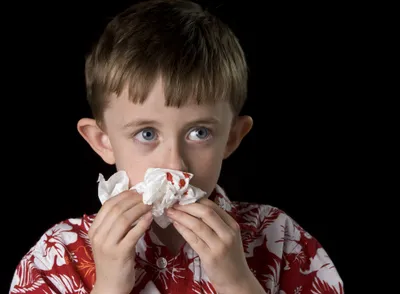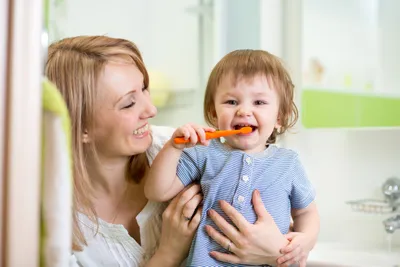Adults can have bad habits that can impact their health, like drinking and smoking, but kids can also have bad habits. Although they probably aren’t considered detrimental to health, these habits can be concerning as a parent.
Oftentimes kids will latch on to a particular habit as a source of comfort, and they don’t really care who’s watching. However, you can help you child break free from these six troubling habits with some attentiveness and diversion tactics…
1. Sucking on Objects
Whether it’s their thumb, fingers, sleeve or a pacifier, children tend to suck on things. While this isn’t really unusual behavior for a child, RaisingChildren.net warns that persistent thumb or finger sucking can start to impact development of teeth.
The source says that if this habit continues beyond 3-years of age, you could see a dentist about installing a “plate barrier” to help block their digits from entering their mouth. You can also consult your pharmacist about using a paint-on solution that deters them through unpleasant taste, it adds.
2. Nose Picking
We’re all guilty of picking our nose now and then, especially if we’re sitting at a long traffic light. But if junior seems to be doing it more than you’re comfortable with, it could be time to try an intervention due to germs that could be spread.
Be sure that your home’s interior has sufficient humidity, or it can dry out nasal passages and make kids more likely to pick at their nose, notes BabyCenter.com. You should also make sure your child is properly hydrated too, and seek medical advice if you suspect any allergies (like pet hair). As perhaps a last resort, you can put bandages on their fingers to make it more difficult to fit a finger up there, it adds.
3. Teeth Grinding
This is a very common habit, also known as “bruxism,” notes DearDoctor.com. It’s most likely happening when they’re asleep, so your child may not even be aware they have a problem. However, it can be a problem – causing pain and restless sleep.
If your child is grinding during their waking hours, the problem may be addressed “or modified” by making them aware of it, according to the source. Take an inventory of any medications your child is on (especially antidepressants), as apparently the number of children prescribed these is on the rise and they can lead to bruxism. ADHD medication could also be the culprit, so talk to the doc.
4. Hair Twirling
Seems harmless enough, but it may occur in early childhood “as a precursor to hair pulling, either with or without hair loss,” explains KidsHealth.org. Helping your kid realize their habit can help them break it, and some kids naturally stop doing it, adds the source.
However, if the problem persists into teen years, hair twirling/pulling can be a warning sign of anxiety, depression or OCD, according to KidsHealth. The source also notes that girls are more likely to adapt this behavior.
5. Nail Biting
Again, this is something else that adults do, but kids may not be aware they’re doing it until they’ve done a lot of damage to their nails. Most kids start this habit around first grade, says Today’s Parent magazine, and many of them watched you doing it first, it adds.
Nail biting is a response to stress or boredom, but you shouldn’t be overly critical about the habit and stress them out more, it says, adding you should “gently intervene”. You can try to gross-tasting nail polish, the finger bandages or even rewarding your child with manicures for proper long nails. You can challenge your child to go a day without biting their nails, and then extend that to 2-days when they pass the first test, it explains.
6. Cheek Biting
This is one of those habits that you’ll probably want to curb early because it can cause physical harm. First you should determine if your child is accidentally or deliberately biting the inside of their cheeks, notes Livestrong.com. Look to see if they’re making chewing motions when they’re not eating. If your child seems to cry out when they bite their cheek, it’s probably accidental and a dentist can inspect their tooth alignment (or you can encourage them to slow down when eating).
As with some of these other habits, coming down on your child hard is not going to resolve the situation (it could actually make it worse, explains the source). “The best thing to do with newly observed nervous habits is to ignore them, because most habits will disappear without intervention,” notes the source.









